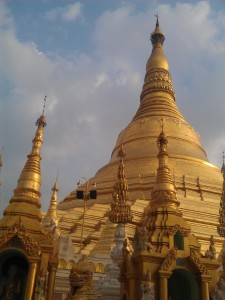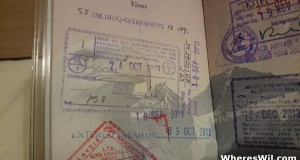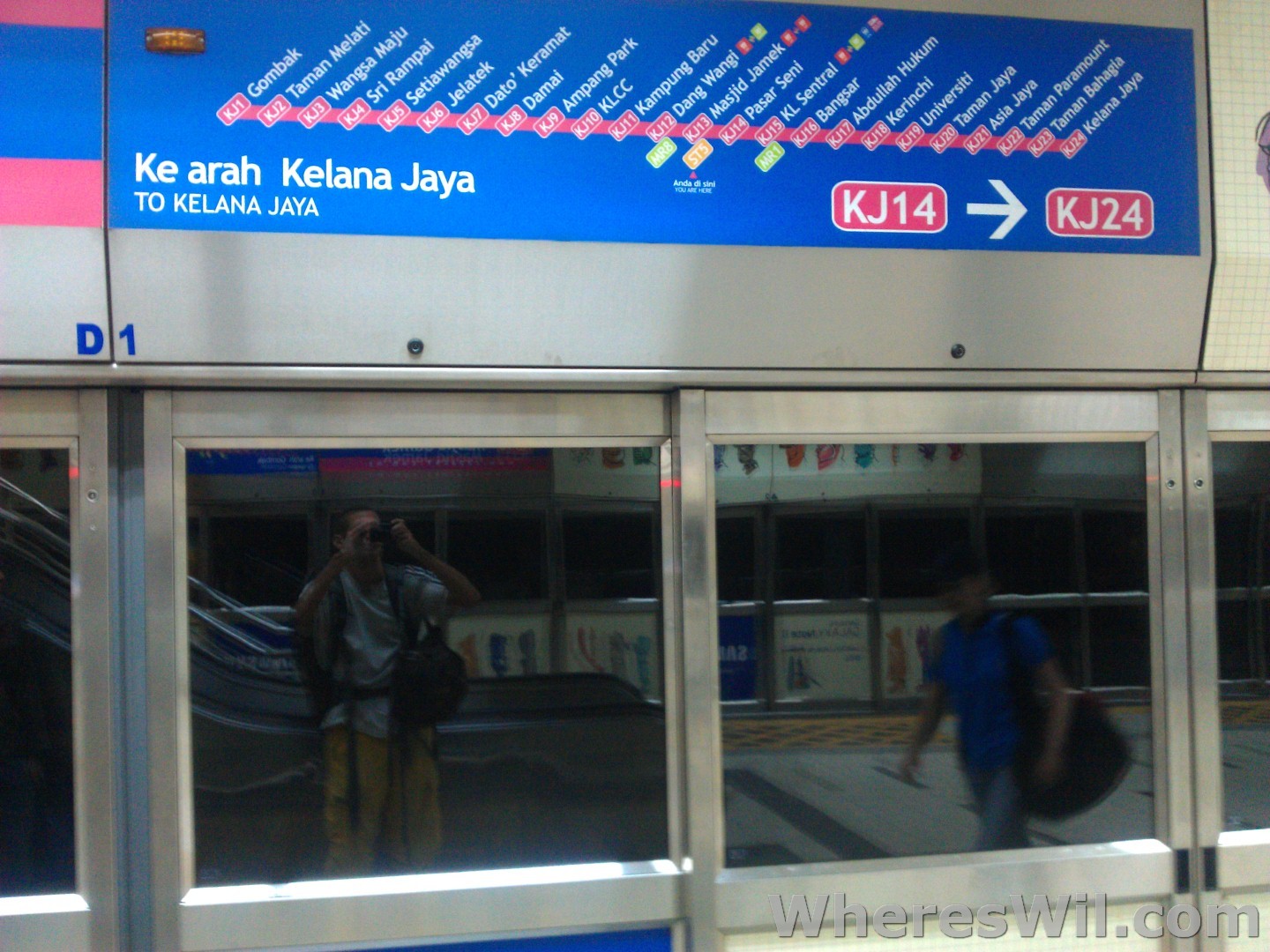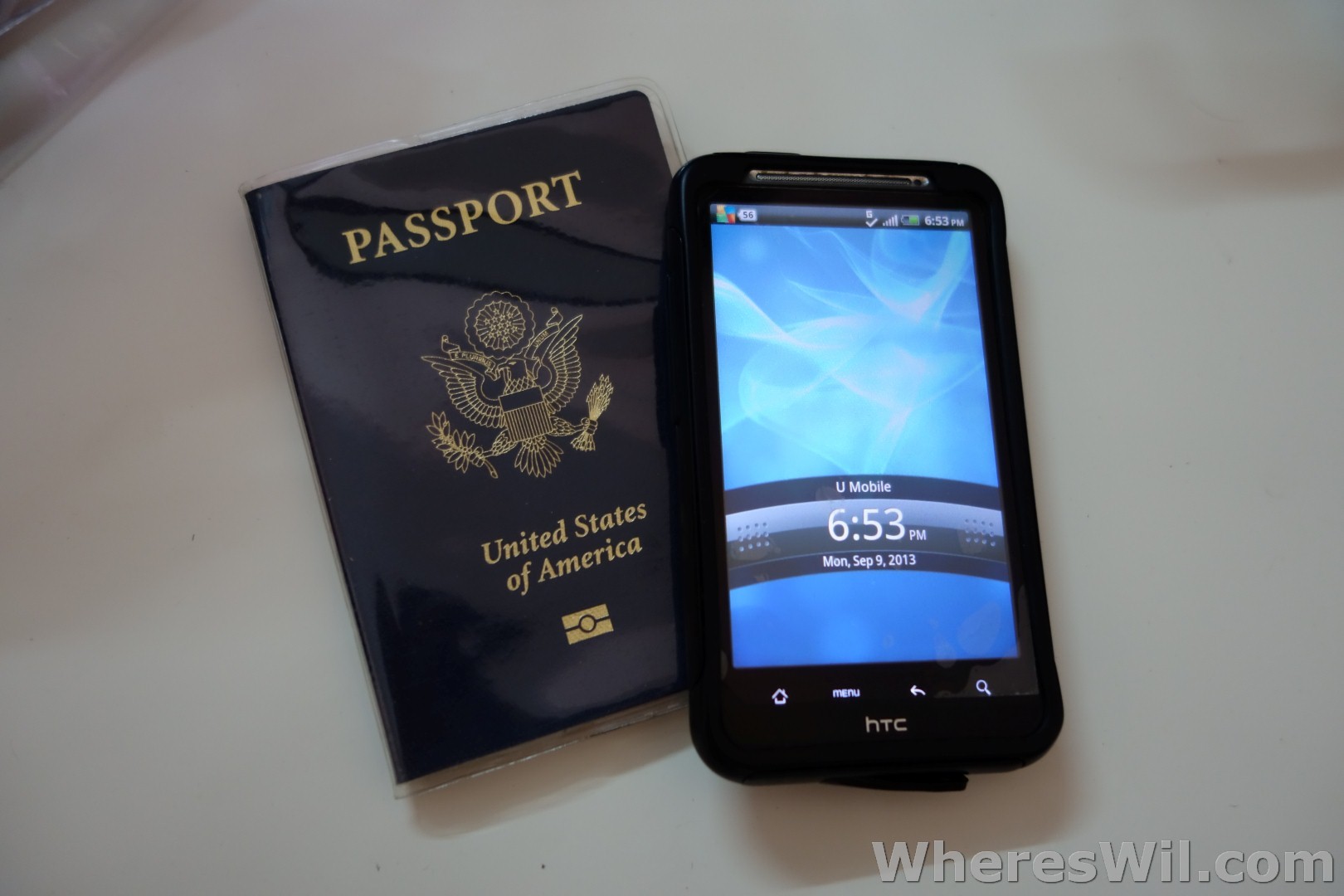Be sure to bring crisp new hundred dollar bills and tell your family and friends you’ll be out of touch for the duration of your stay… Bullshit.
Even the most up-to-date blogs and resources still say that Myanmar is disconnected and the only explanation for this is either that the authors haven’t been to Myanmar themselves or they just copy what others have said and with a country changing so rapidly, that just doesn’t work.
Getting Money in Myanmar (Burma)
While it is true that if you want to use US currency (you sometimes get a better rate) that your bills do need to be from the new series and in perfect condition (no ink marks or tears), that’s is no longer the only option for money in Myanmar. You no longer need to carry your entire trip fund on you, in cash.
Stepping off the plane at Yangon airport there are several ATMs (one by baggage claim and several after customs), so you’ll be fine to withdraw enough cash to pay your taxi.
Even though most of the locals don’t yet have debit cards, ATMs are scatter throughout major cities and around tourist attractions. Anywhere the government or the banks think that tourists will spend or need money, there’s a machine or plans to have one installed. (A local even told me that there will be a push for their citizens to start using a checking account/debit card this year.)
Phone and Wifi Internet in Myanmar (Burma)
Just a few years ago Myanmar was very disconnected in terms of communication.
Phones and even SIM cards (which are practically free in most western countries) where priced in the thousands of dollars and only the very wealthy could afford a phone.
Every year the infrastructure grows and their prices drop, as Myanmar moves into the digital age.
While you can buy a Sim card as of April 2013 for under $2, they still have a fairly high ‘per-minute’ call rate and do NOT have data plans.
Instead of using a telephone, I recommend Wifi.
To compensate for the communication issues, guesthouses and hotels are becoming more and more Wifi friendly and many do not charge extra for the service (even most budget hotels have Wifi though it may be a bit slow). Note: There are frequent power outages throughout the country on a daily basis but almost all guesthouses have generators to keep their lights, fans, and wifi up and running.
In even some of the more remote (yet tourist friendly) areas of the country, where they exclusively use generators for electricity, you’ll find resorts with Wifi and internet cafes charging less then $2/hour.
Safety in Myanmar
For almost everywhere I’ve visited, I’ve had people warn and even attempt to deter me going on my trip or visiting a particular destination and Myanmar is no exception.
While there is risk with any travel, hell waking up anywhere in the world involves some risk, most of the time these warnings are based on ignorant and fear.
All travelers must learn to avoid a bad situation, avoid being scammed, avoid falling for lies or being manipulated but all in all, Myanmar is an extremely safe place (in my experience) for traveling.
Even though there is a current, violent conflict within the country between Muslims and Buddhists, I have never been more welcomed by a country’s people.
Friendly people, severe punishment for crimes against tourists, and Buddhist society all contribute to the thoughts I had, walking alone, down back alleys in big cities “.If I was in a different country right now, this would not be safe.”.
Though you should be cautious traveling anywhere in the world, armed with a smile in Myanmar should be more then enough protection.
Myanmar (Burma) is now easier to get to, easier to learn about, safer and more connected with than ever before. Get there before it changes.
 Where's WiL My around the world solo travel blog
Where's WiL My around the world solo travel blog





So nice to hear about your time in Myanmar. It sounds like a great experience. I love your blog posts!
It will be interesting to re-visit in a few years once tourism picks up and see the changes that result. Nice that you got to see Myanmar in it’s most pristine, natural, nominal tourist period.
There is not such “Severe Punishment for crime against Tourists” in Myanmar. As a Myanmar citizens, I never heard of it. Probably your second reason about “Buddhist society” might be the reason that there are lesser crimes against Tourists.
Generally, we just want to make friends with tourists and had a conversation.
Locals in country have told me otherwise and online resources state “The government punishes crime, particularly against tourists, severely; it has a hard enough time convincing tourists to go there due to its international reputation.”
Well… I am local in Yangon and It keep me wonder which online posts started saying that about government punishment and I happen to comment under your post.
Just a few questions… Do you think government care to enforce the law for tourists? Do you think there are rule of laws effectively enforced on the people of Myanmar?
I don’t want to bring down the beauty of my country in front of tourists but my country laws are like if someone robbed the tourists and take half with police, it is all solved unpunished… It was that easy… in my opinion…
So my point here is we don’t do it cos we don’t want to… it’s not bcoz laws enforced upon us.
BTW, I really enjoy reading your blog and thank you for visiting my country and sharing it to the rest. Please come again if you have chance next time. 😀
Great article. I am heading to Yangon in April for the water festival and am very experience this culture first hand. I have read so much and there is so much old information, great to read about from a traveler who has actually been and enjoyed. Thanks for the read, be well!
As of Sep 2014, Yangon, Bagan and Mandalay all have ATMs that accept Visa cards, and I’ve seen some accept Master cards.Sometimes, it pays to pay in kyat than in US dollars (and the ATMs dispense kyats) but the exchange rate and the bank fees associated with the transaction can sometimes make paying in US dollars convenient. So keeping your eye on the forex rate your bank uses can help especially if you are going to take out wads of local cash. If paying in USD though, expect that locals may quote you 1,000 kyats per $1USD (official exchange at the time was somewhere around 950k=$1USD). USD trumps Euro though, especially in Bagan where they charge $US15 or EU15 to enter the zone. Internet is pretty decent if no one else is sharing it with you (I work online to fund my travels) and for international calls that require a call to landline, like your airline, we used a local variety of VOIP. We wandered the streets of Yangon and Mandalay at night (and sometimes even veered off onto unlit streets); and while there were plenty of stares from longyi-clad men (to which I wondered because we’re Filipinos and look like we could easily blend in), we were pretty much left alone. And no, Burma is no longer the off-the-grid country it once was. I had to get over my initial shock at seeing betel-chewing Buddhist monks wield iPads and iPhones – and on Facebook at that! – like they’re part of their religious accoutrement. Unless you are a fan of dunk-in-the-bucket style of dishwashing, street food – and standards of budget accommodation – in the big cities have a lot of catching up to do to get at the same level with Bangkok. All in all though, Burma is worth of whatever imaginary or real troubles you may encounter along the way as long as you exercise common travel sense.